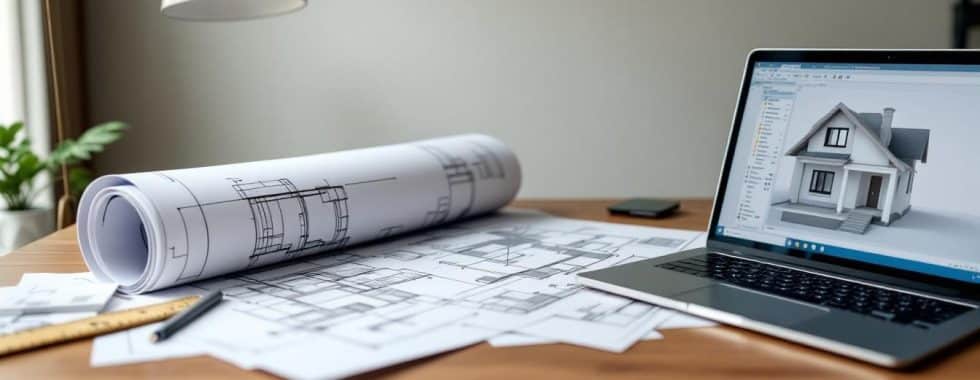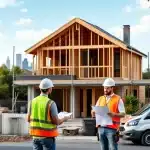Do House Renovations Require a Building Permit?
At Cameron Construction, we often get asked: “Does house renovation need a building permit?” It’s a common question that many homeowners face when planning to update their living spaces.
The answer isn’t always straightforward, as permit requirements can vary depending on the scope of your project and local regulations. In this post, we’ll explore when you need a building permit for house renovations and why they’re important.
What Is a Building Permit?
Official Approval for Construction
A building permit is an official approval from your local council that allows you to start construction or renovation work on your property. These permits play a vital role in ensuring the safety and legality of your home improvement projects.
Importance of Building Permits
Building permits serve several important purposes:
- They verify that your planned renovations comply with local building codes, zoning laws, and safety standards.
- They protect you, your family, and your neighbours from potential hazards.
- They help maintain the structural integrity and value of your property.
The Victorian Building Authority states that failing to obtain required permits can result in hefty fines. In fact, the building regulator issued more than $180,000 worth of penalties to building practitioners found breaking the rules in the past. Moreover, your insurance company might deny claims related to unpermitted work, leaving you financially exposed.
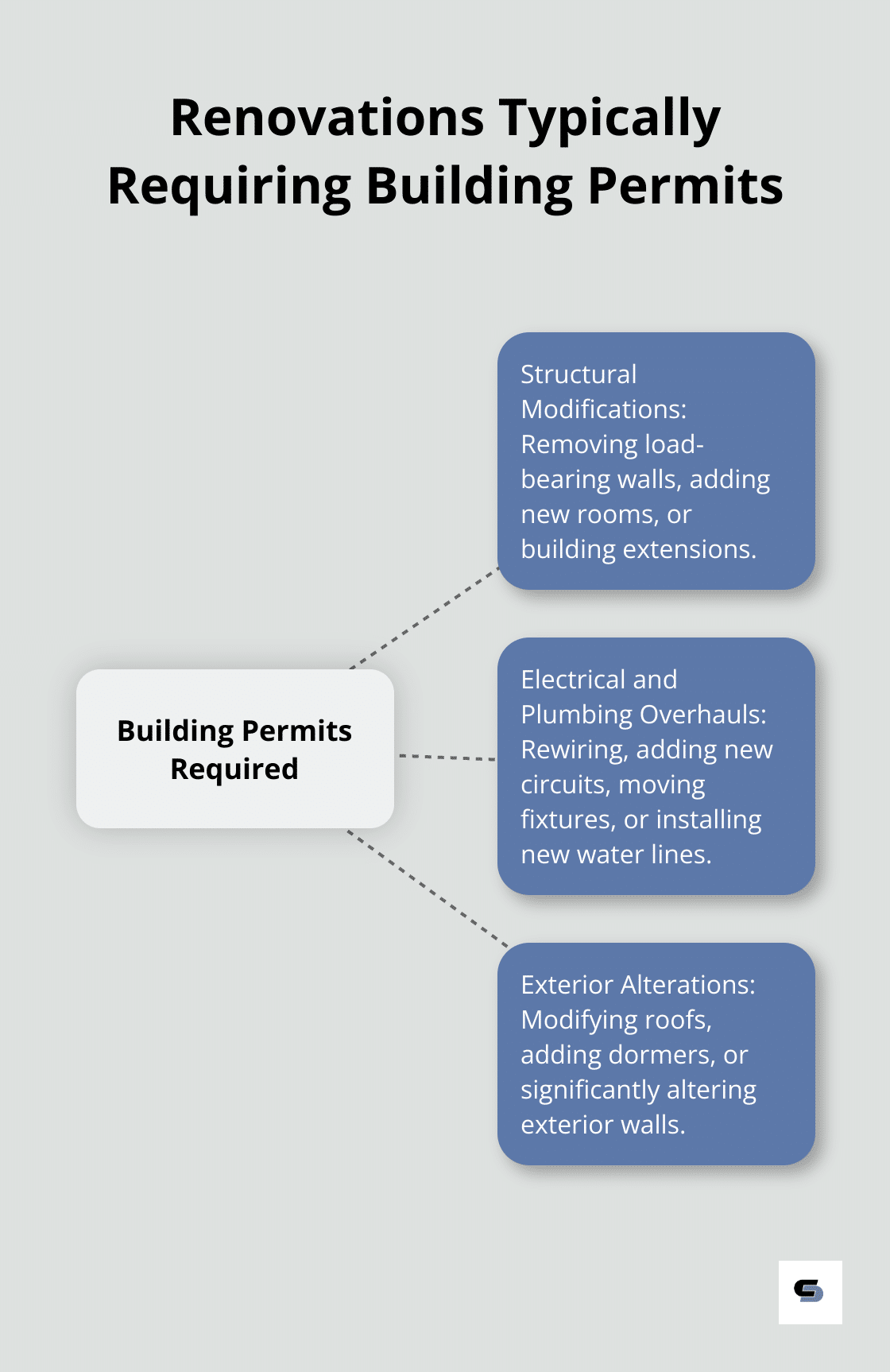
When Permits Are Necessary
You’ll typically need a building permit for any work that alters your home’s structure, affects its safety, or changes its use. Common scenarios include:
- Structural changes (removing load-bearing walls, adding rooms, or building extensions)
- Electrical and plumbing work (rewiring, adding new circuits, or moving plumbing fixtures)
- Exterior modifications (changing rooflines, adding windows, or building decks over a certain height)
The Permit Process
Obtaining a building permit involves several steps:
- Professional consultation: Discuss your plans with a licensed builder or architect
- Documentation preparation: Gather detailed plans, specifications, and required supporting documents
- Application submission: Apply through your local council or a private building surveyor
- Fee payment: Building permit fees vary based on the project’s value and complexity
- Approval waiting period: Processing times can range from a few days to several weeks
Many reputable construction companies guide their clients through every step of the permit process, ensuring all necessary approvals are in place before work begins. This approach saves time, money, and potential complications down the road.
While some minor renovations might not require permits, it’s always best to check with your local council or a professional builder before starting any work. The peace of mind and legal protection are invaluable.
Now that we understand what building permits are and why they matter, let’s explore specific types of renovations that typically require these important approvals.
Which Renovations Require Building Permits?
At Cameron Construction, we’ve observed that many homeowners underestimate the need for building permits. Let’s examine the most common renovations that typically require official approval.
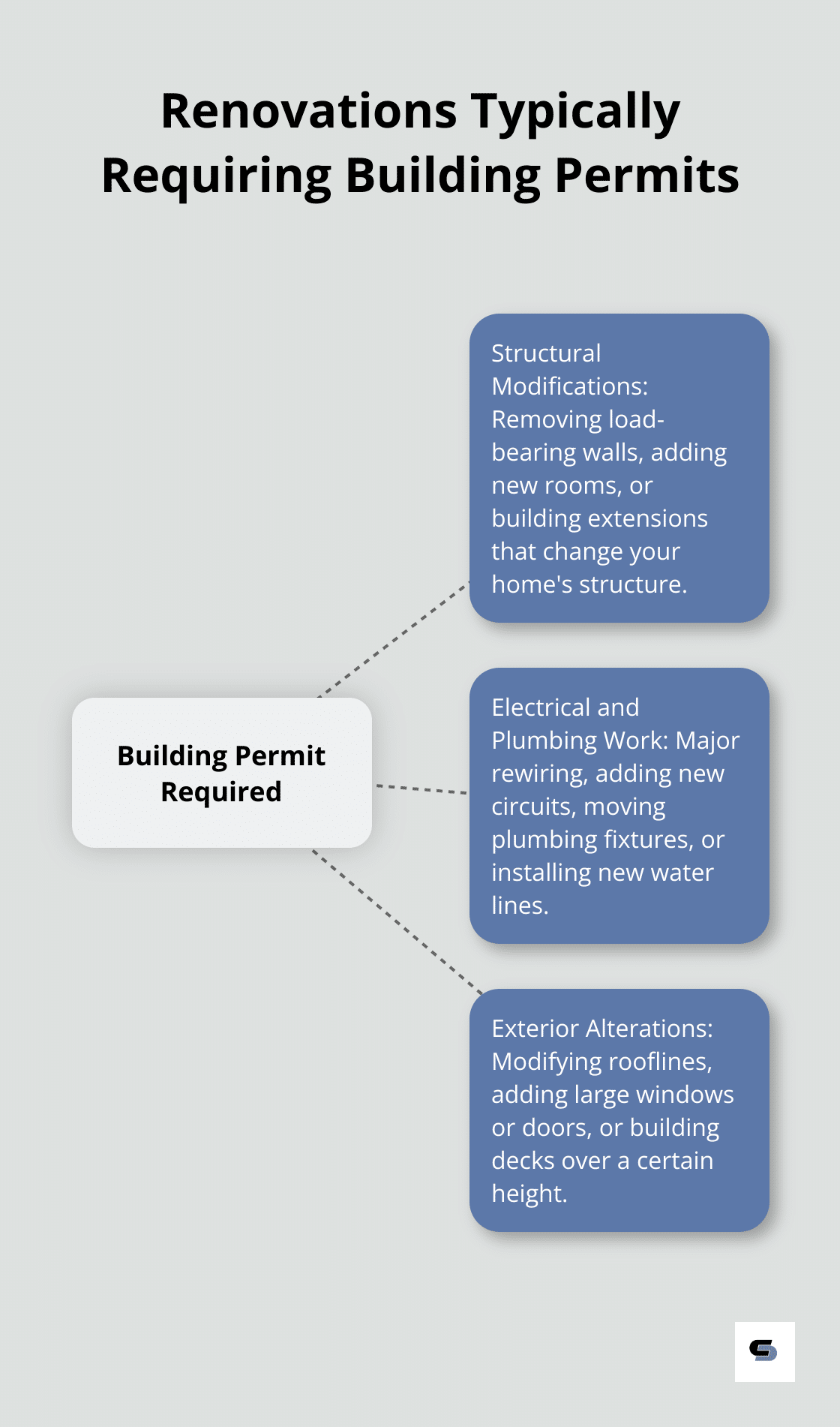
Structural Modifications
Any changes to your home’s structure almost always need a permit. This includes:
- Removing load-bearing walls
- Adding new rooms
- Building extensions
The general rule in Victoria is that you will need to apply for a building permit if you are planning to change the shape or structure of your house. The Victorian Building Authority reports that structural alterations without proper permits can lead to infringement notices. These changes affect your home’s integrity and safety, making permits essential.
Electrical and Plumbing Overhauls
Major electrical work requires permits. This includes:
- Rewiring your house
- Adding new circuits
Significant plumbing changes also need approval, such as:
- Moving fixtures
- Installing new water lines
The risks associated with unpermitted work are simply too high.
Exterior Alterations
Changes to your home’s exterior often need permits. This includes:
- Modifying your roof
- Adding dormers
- Significantly altering exterior walls
Even seemingly minor changes (like adding a large window or door) can require approval, especially in heritage areas.
The Permit Process
The permit process might seem daunting, but it exists to protect you and your investment. Many reputable construction companies (Cameron Construction included) guide their clients through every step, ensuring all necessary approvals are in place before construction begins. It’s not just about avoiding fines – it’s about creating a safe, legally compliant home that will stand the test of time.
While we’ve covered the renovations that typically require permits, it’s equally important to understand which projects might not need official approval. Let’s explore those scenarios in the next section.
When Is a Building Permit Not Required?
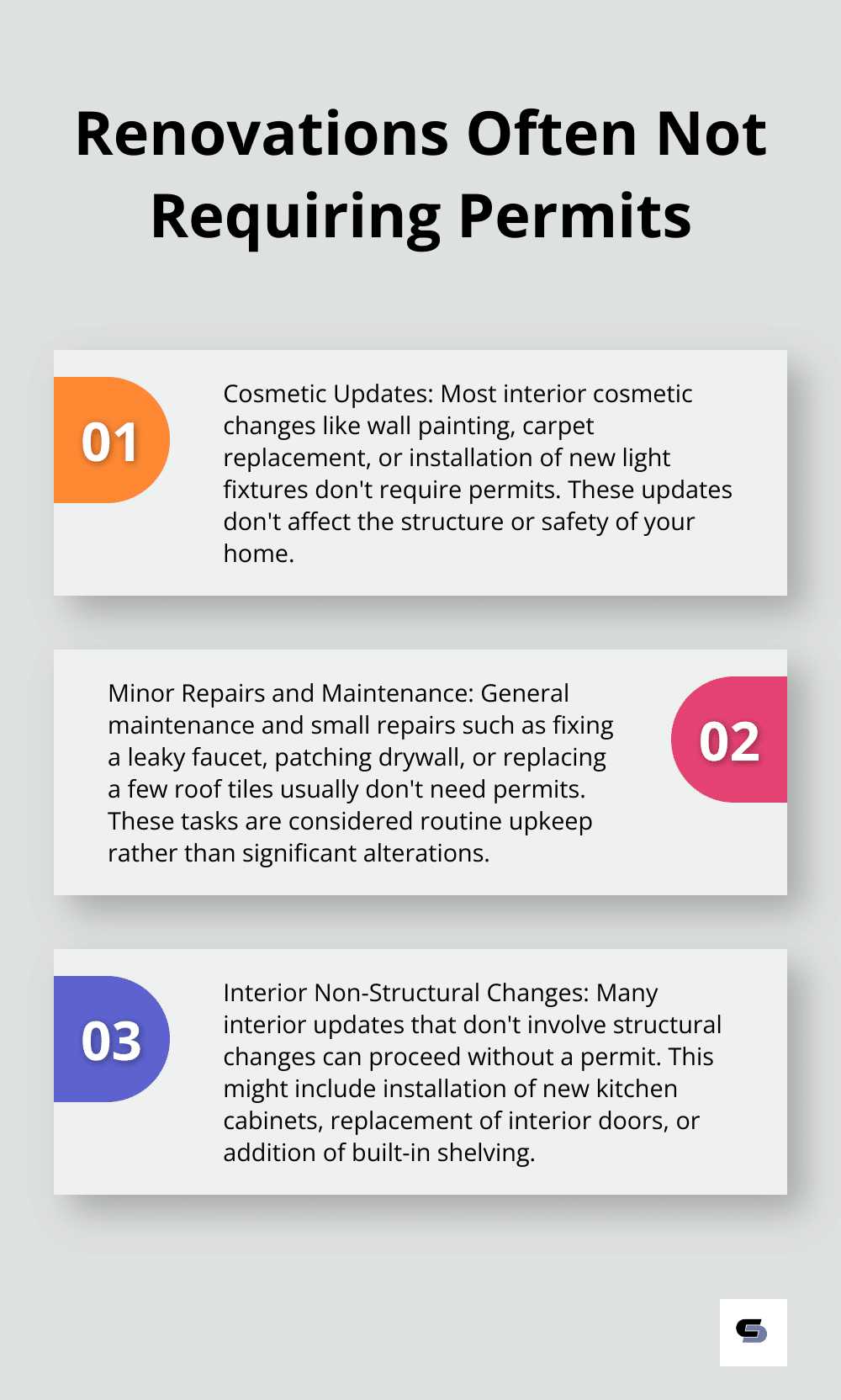
Cosmetic Updates
Most cosmetic changes to your home’s interior don’t require a permit. This includes wall painting, carpet replacement, or installation of new light fixtures. These updates don’t affect the structure or safety of your home, so they’re generally exempt from permit requirements.
However, exercise caution with heritage-listed properties. Even minor changes might need approval in these cases. If you’re unsure, consult with a professional before you start your project.
Minor Repairs and Maintenance
General maintenance and small repairs usually don’t need permits. This could include fixing a leaky faucet, patching drywall, or replacing a few roof tiles. These tasks are considered routine upkeep rather than significant alterations.
However, it’s important to note that building work conducted without a permit will result in heavy penalties, as prescribed under sections 16 and 16B of the Act. There are exemptions from this requirement, but it’s crucial to be aware of the regulations.
Interior Non-Structural Changes
Many interior updates that don’t involve structural changes can proceed without a permit. This might include installation of new kitchen cabinets, replacement of interior doors, or addition of built-in shelving. As long as you don’t move walls or alter the home’s layout, you’re often in the clear.
In Queensland, some minor building works like home repairs and renovations do not require a building approval. These are called ‘accepted development’.
However, be aware that significant electrical or plumbing changes (even if they’re part of a non-structural renovation) might still require permits. For instance, if you add new electrical circuits or move plumbing fixtures, you’ll need to check with your local council.
Regulations Vary
While these guidelines can help, it’s important to note that regulations can vary between councils and states. What’s permissible in one area might require approval in another. We at Cameron Construction always recommend consultation with local authorities or a professional builder before you start any renovation project (no matter how small it might seem). This approach ensures you’re always on the right side of building regulations, avoiding potential fines or complications down the line.
Final Thoughts
Building permits play a vital role in house renovations. They ensure safety, compliance, and protect your investment. The question “Does house renovation need building permit?” depends on your project’s scope and local regulations. We always recommend checking with your local council before starting any work.
Renovating without required permits can lead to fines, insurance issues, and decreased property value. Proper permits, on the other hand, offer numerous benefits. They guarantee your renovations meet safety standards, comply with local rules, and maintain your home’s structural integrity. Permitted work often increases property value and provides peace of mind for future buyers.
At Cameron Construction, we understand the importance of navigating the permit process correctly. Our expert team (with over 40 years of experience) guides clients through every step, ensuring all necessary approvals are in place before work begins. We deliver high-quality, compliant renovations that enhance your home’s comfort, functionality, and aesthetics.

